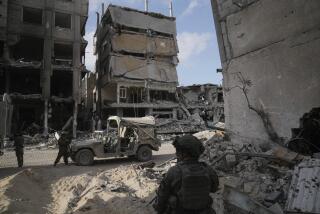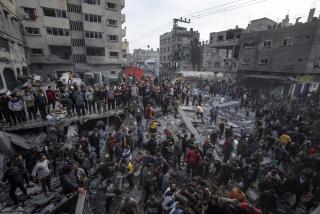Toward a less deadly Iraq
Whenever we see a report on the declining violence in Iraq, weâre reminded of the old book title, âBeen Down So Long It Looks Like Up to Me.â Take, for instance, the report that the civilian death toll fell in November to the lowest level since the 2003 U.S. invasion: 88 fatalities. That was after October bombings in Baghdad killed 155 people, and just ahead of Decemberâs two rounds of multiple car bombings in the capital that left at least 136 dead and hundreds wounded.
Donât get us wrong. This is far from the height of the civil war in 2006-07, when thousands of civilians died each month and every day was a struggle for typical Iraqis to get their children to and from school, go to work, do their shopping and stay alive amid attacks by ethnic death squads and car bombings. By that measure, even as dozens of pilgrims were killed and more than 150 wounded by sectarian insurgents, the Shiite Muslim holiday of Ashura last month was relatively peaceful.
Iraq is experiencing what has been called a âcreeping normalization,â which is not to say that life is normal for most Iraqis. The daily and monthly death tolls are still unacceptably high if the country is to rebuild its economy and public life. The Al Qaeda-affiliated group known as the Islamic State of Iraq has claimed responsibility for several of the recent bombings, although Prime Minister Nouri Maliki also has blamed remnants of Saddam Husseinâs Baath Party. The bombers appear determined to show that Malikiâs U.S.-backed government cannot provide security in place of American troops -- now largely confined to bases and scheduled to pull out this year -- and are doing what they can to reignite the embers of sectarian strife. The violence is expected to increase in the run-up to national elections on March 7, as Iraqâs Shiite, Sunni and Kurdish communities vie for power.
The United States can continue to provide the Iraqi government with intelligence and other support to battle extremists, as well as advice for strengthening governance. But it is up to the Iraqis now to finish the business of political reconciliation. Besides holding another fair election, they must build an impartial judicial system, continue to integrate disaffected Sunnis into the Shiite-dominated military and political process, and figure out how to divide power and resources between the central and provincial governments, particularly in the Kurdish region. This is what will bring the death toll down even further and prevent the countryâs return to civil war.
More to Read
Sign up for Essential California
The most important California stories and recommendations in your inbox every morning.
You may occasionally receive promotional content from the Los Angeles Times.










